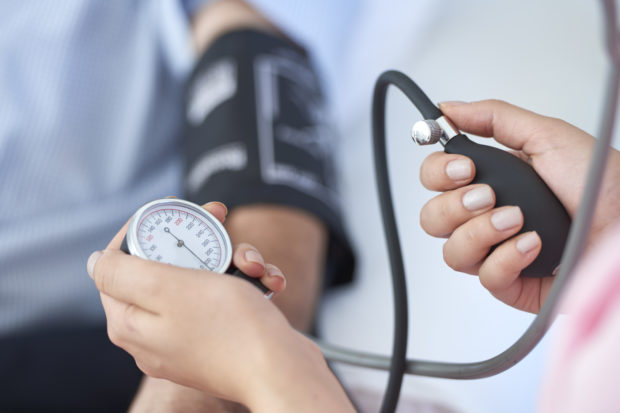
Image: stockvisual/Istock.com via AFP Relaxnews
New research has found that having high blood could increase an individual’s risk of dying from COVID-19 by two-fold, compared to those without the condition.
Led by researchers from Xijing Hospital, China, the new study looked at data gathered from 2,866 patients with COVID-19 who were admitted to Huo Shen Shan hospital in Wuhan between Feb. 5 and March 15, 2020.
Of these patients, 29.5% (850) had a history of high blood pressure, also known as hypertension. Moreover, the researchers found that 4% of the hypertensive patients with COVID-19 died compared to just 1.1% of patients without hypertension, which they calculated to be a 2.12-fold increased risk after taking into account influencing factors, such as age, sex and other medical conditions.
The findings, published in The Lancet, also showed that the patients with hypertension who didn’t take medication for the condition had a 2.17-fold increased risk of dying from COVID-19 compared to those who were taking medication.
To investigate further, the team carried out a meta-analysis of nearly 2,300 patients in three other studies and found that patients taking medication to control blood pressure levels, in this case RAAS inhibitors, also had a lower risk of death than patients treated with other drugs. However, the researchers note that the result could be due to chance as the number of patients in this analysis was small.
“It is important that patients with high blood pressure realize that they are at increased risk of dying from COVID-19. They should take good care of themselves during this pandemic and they need more attention if they are infected with the coronavirus,” advised one of the lead authors, Professor Fei Li.
“In contrast to our initial hypothesis, we found that RAAS inhibitors, such as ACE inhibitors or angiotensin receptor blockers, were not linked to an increased risk of dying from COVID-19 and, in fact, may be protective. Therefore, we suggest that patients should not discontinue or change their usual antihypertensive treatment unless instructed by a physician.”
The researchers point out that it is too early to make clinical recommendations based on what they have observed in the hospital, and that further randomized controlled clinical trials are needed to investigate further.
“These data should be interpreted cautiously,” said Prof. Tao. “However, they support recommendations for the European Society of Cardiology that patients should not discontinue or change their normal, antihypertensive treatment.” IB
RELATED STORIES:
Vitamin D deficiency linked to COVID-19 severity by new research
Even light exercise could lower risk of heart disease for those with metabolic syndrome